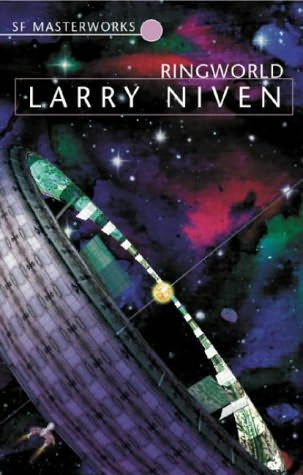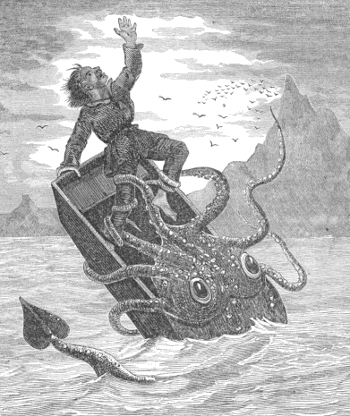For those familiar with the Halo games,
Ringworld is where the concept of a world on the inner edge of a circular strip of metal was borrowed from. In case you're wondering, that seems to be all that has been borrowed.

The setup of the book is essentially this:
In the distant future everyone knows that in the somewhat distant past the stars at the center of the universe all went crazy supernova together and that the radiation of their explosions are racing toward the section of the universe where a bunch of life (including humans and other sentient species) hangs out. Because all of that is travelling at the speed of light, it will arrive in the slightly more than somewhat distant future but at present almost no one is terribly worried about it because they're procrastinators. One particularly cowardly species called the Puppeteers (at least, by the humans) has already gotten the hell out of Dodge in the slightly distant past.
One day a Puppeteer called Nessus shows up and propositions a human called Louis and a Kzin called Speaker-to-Animals to come with him on a secret mission in exchange for a seriously advanced spaceship that would help move their respective races out of the way of the radiation. Louis accepts because he knows that humans will procrastinate until it's too late to get everyone out safely and the faster-than-light ship will be useful. Speaker accepts because the Kzin are big catlike warriors and he wants the combat advantage that such a ship would provide. (Humans are great and normal and balanced and Kzin are warlike to the point of stupidity while Puppeteers are cowardly to the point of stupidity--this probably should have warned me that the gender dynamics would be obscenely unbalanced but it didn't).
Nessus tells the others that they need one final crew member--a human female named Teela. It turns out that because human population growth has been controlled by lotteries and other regulations, Teela has essentially been bred for luck. Which would be fine except that she is so ridiculously lucky that she's never had anything not go well for her. She's never stubbed a toe, never had her heart broken, etc.--and because of this, she is incredibly naive and self-centered, like a child who happens to be twenty years old. Also, surprise surprise, she decides that she wants to have sex with Louis, who is 180 years her senior even though he doesn't look it. There are tons of moments that made my gender criticism radar ping like mad, but here's one that caused me to stop, look for a pen, and simply write "What." in the margins:
(At this point they think that Teela might not actually be freaky lucky because their ship has crash-landed on the Ringworld. Teela is mad at Louis for letting her climb on a dangerous lava flow without warning her, essentially letting her get injured for one of the first times in her life.)
"Her lips, he saw, were perfect for pouting. She was one of those rare, lucky women whom crying does not make ugly ...
[Teela:] 'You wanted me to burn my feet!'
[Louis:] 'That's right. Don't look so surprised. We need you. We don't want you killed. I want you to learn to be careful. You never learned before, so you'll have to learn now. You'll remember your sore feet longer than you'll remember my lectures.'
'Need me! That's a laugh. You know why Nessus brought me here. I'm a good luck charm that failed.'
'I'll grant you blew that one. As a good luck charm, you're fired. Come on, smile. We need you. We need you to keep me happy, so I don't rape Nessus'" (141).
What.
Granted, Louis is trying to lighten the mood, but the joke that Teela's primary function is to warm Louis' bed is made a few too many times throughout the novel--including at least once by Teela herself--for me not to have a problem with it. Moreover, as the novel progresses, Louis concludes that Teela's luck manipulates the environment around her to such a level of detail that she can hardly be said to have free will at all. Oh, good.
But what about the other human women? We don't see any of them except as sex-props at a party Louis throws.
What about the female Kzin and Puppeteers? They're nonsentient. Really, that's the word used to describe them in the novel. Hurrah.
A swift kick in the balls to you, Larry Niven.
Finally, it's a small detail by comparison, but the swearword that Niven made up for his characters, "tanj", annoys me because we're told that it's an acronym for "There ain't no justice!" but it is used in all of the ways that "fuck" can be used: "We're tanjed", "Tanj it", and so forth, which really aren't grammatical when you replace the acronym with the actual phrase: "We're there ain't no justice-ed!" and "There ain't no justice it!". Niven would have been better off leaving them saying "tanj this" and "tanj that" without an explanation.
Final verdict: I know it's supposed to be a classic but even without the intense sexism, it just wasn't as impressive as quite a few of the other classics in the genre (
Ender's Game,
The Hitchhiker's Guide to the Galaxy,
Dune, etc.).


